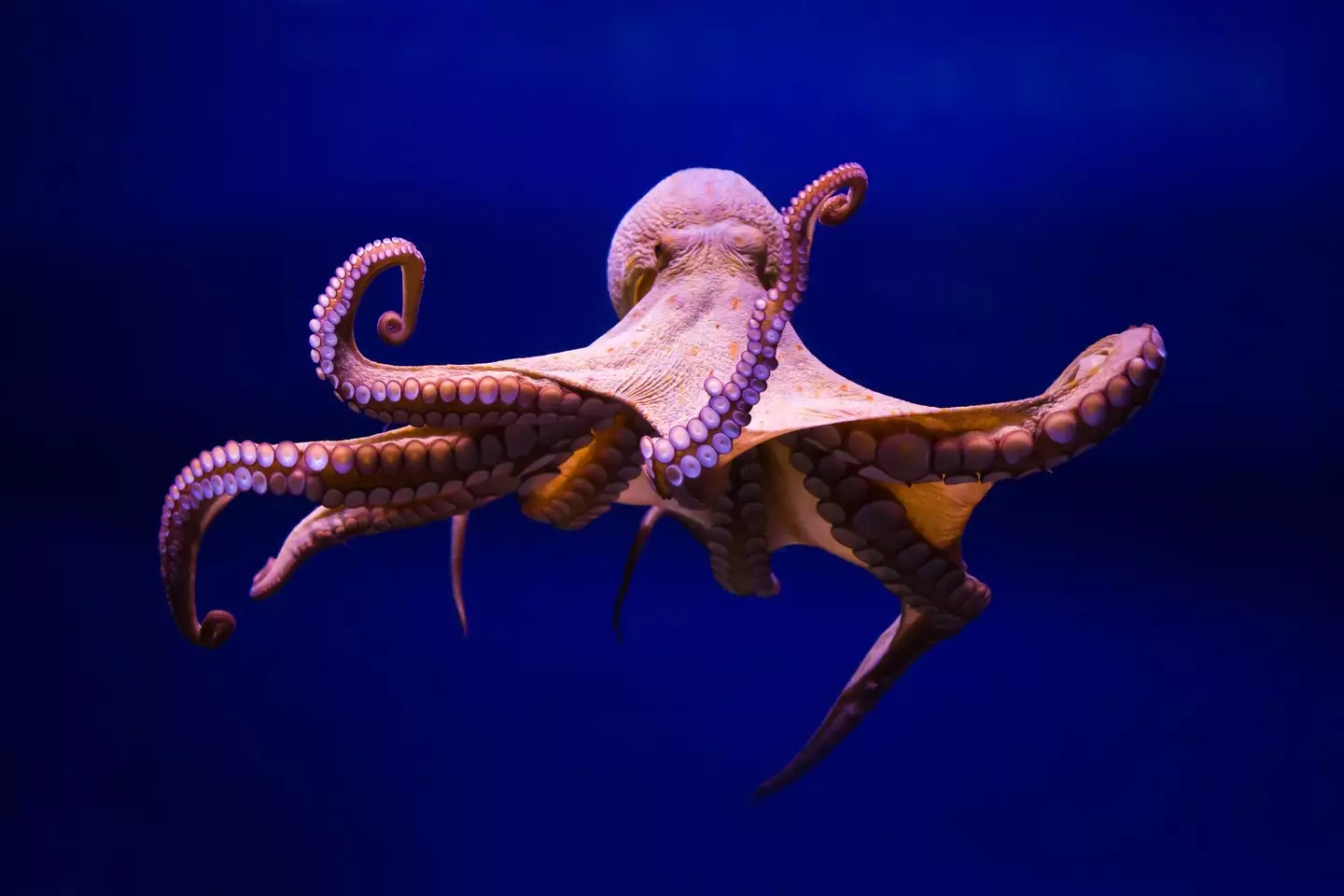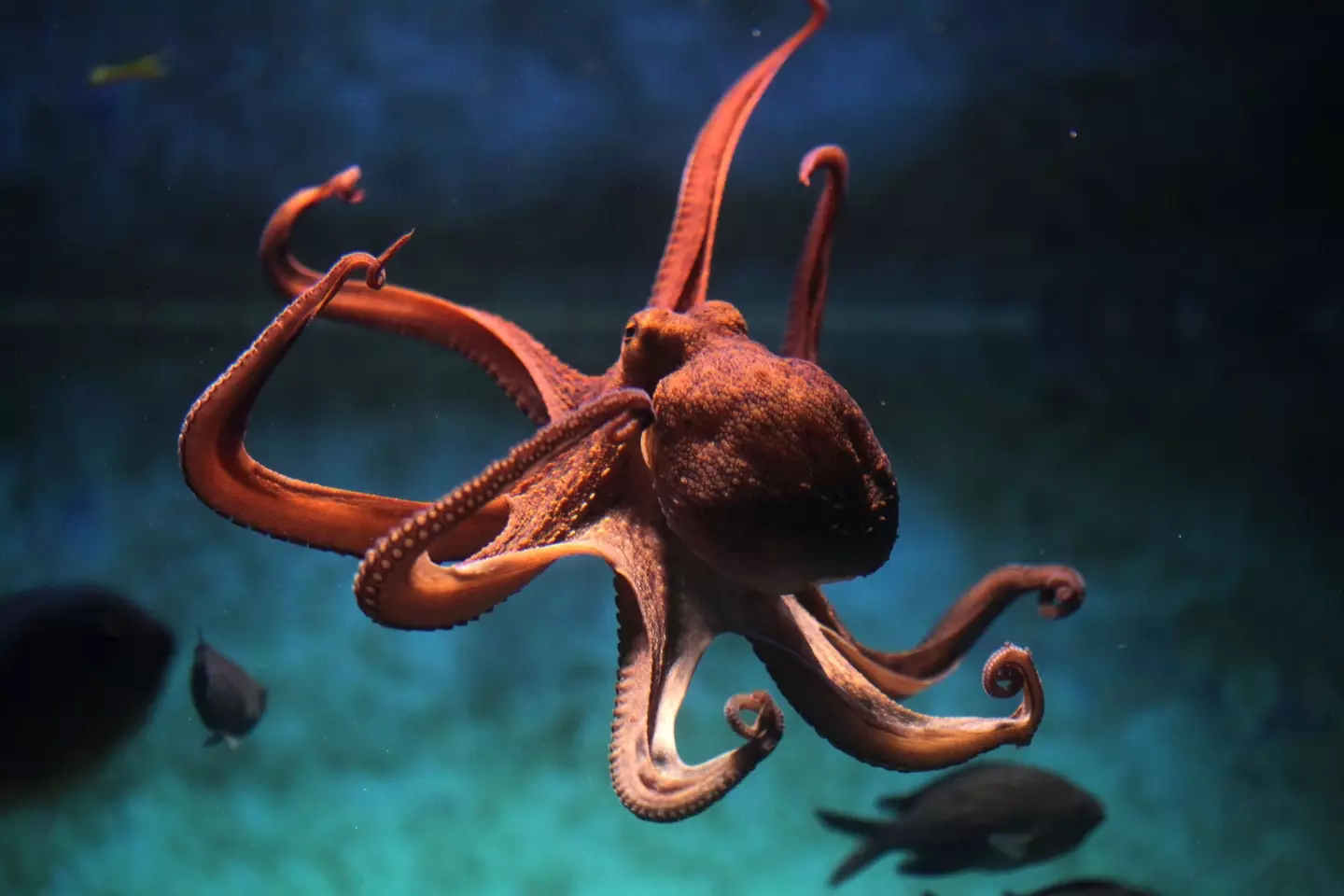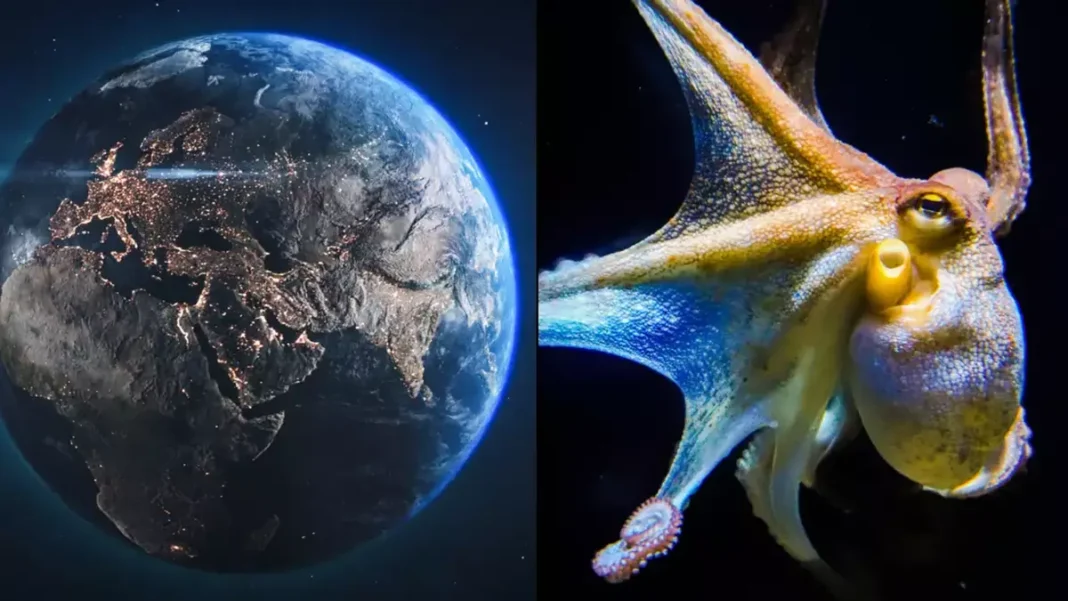Your chances of being overthrown by a colony of octopi are slim, but not impossible (lets hope The Simpsons never predict this!)
According to a scientist, you could actually expect the world to be ran by the eight tentacled creatures if we ever ceased to exist, and understandably, the reason is as mad as you’d expect.
While you might have thought that if a mass extinction event of the human race ever occurred, the first in line to the throne would be a species a bit more ferocious.
Lions, tigers and bears (oh, my!), but never an octopus.
This however might just become reality in the future.
Even though they say that cockroaches are actually the most durable species on earth, it doesn’t mean that they have the brain power in their little noggins to set up a working society.

The world could be taken over by octopuses (Getty Stock Image)
Apes might also have been another contender as they’re so closely matched to us.
From their child-rearing, complex problem-solving skills and ability to even learn sign-language, surely, they’re our natural padawan?
Apparently not.
According to Professor Tim Coulson, from the University of Oxford, octopi have the key attributes to take over our role.
He explained to The European that the animal has the ‘dexterity and intelligence’ that ‘makes them a strong candidate to evolve to build civilisation’.
Professor Coulson said that it was this ability to solve complex problems and communicate with one another using flashes of colour, is why they are the ‘brains of the sea’ and perfect choice to take over.
This colour-changing ability is gnarly, yet effective to let others know what’s going down.

If humans died, octopuses would rule (Getty Stock Image)
Octopi use their eyes to see in the deep blue, but also to help map out what’s around it.
Only seeing in grey, its pupils distort light to estimate the idea of colour, which is then transmitted from its brain to the eight arms which then add colour from thousands of cells called chromatophores.
Each of these cells have a little sac filled with black, yellow, brown, red or orange pigment.
Under that are cells called iridophores which can reflect light back up through the octopi skin which make it look brighter.
As they don’t have blue or green pigment, they use the reflective iridophore cells to add mimic this and can even match the texture of things around it.
These colours can convey a lot, such as whether it feels threatened or if it’s trying to intimidate.
But what about taking over the land?
So, obviously they aren’t going to suddenly grow legs and slink out of their wet suits to be able to conquer anything above water.

They have the key attributes (Getty Stock Image)
However, they could instead ‘construct underwater communities resembling cities we see on land’.
He also thinks they could evolve to hunt on land too as they can survive 30 minutes outside of water.
He explained that it’s like how humans learned how to fish and said: “It may take them hundreds of thousands or even millions of years to evolve to do this.”
But as they only live between one and five years, they can’t really afford the time it takes to learn such a task.
Professor Coulson added: “With evolutionary advances, it is possible, if not probable, that they might develop ways to breathe outside of water and eventually hunt terrestrial animals like deer, sheep, and other mammals – assuming they have survived the catastrophic event that drove humans extinct.”
He said: “Of course, the rise of the octopuses is all speculative: evolution is unpredictable, and we can’t say with certainty what path it will take in the event of human extinction.
“Random mutations, unforeseen extinction events, and population bottlenecks can all significantly influence the trajectory of evolution, making it challenging to determine whether another species will develop human-level intelligence or the inclination to construct cities.”






